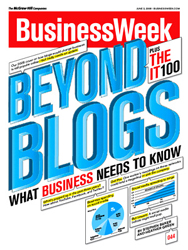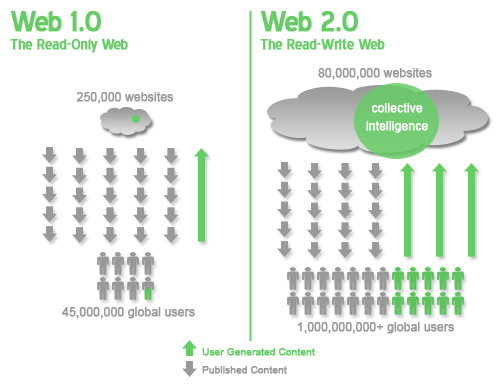Modern Old-fashioned Networking
In E-commerce Basics, Social Media, Social Networking, Web 2.0 | No comment
Here are some suggestions:
(more…)


Here are some suggestions:
(more…)

A recent global pole conducted by Sapphos estimates that about 50 percent of employees are blocked from or restricted in their Facebook use. MySpace, YouTube and LinkedIn are also commonly blocked.
These companies may believe they are gaining an edge on employee productivity, but what they’re actually doing is eliminating powerful marketing, advertising and recruiting mechanisms. Facebook is one of the most trafficked sites on the Web and smart companies are taking advantage of that. Social networking can easily segue into social marketing with the right techniques.
(more…)

In September, 6.1% of Americans were without jobs. This month the rate will likely top 7%. The forecast doesn’t get any better in 2009, when economists predict the rate to peak at over 10%.
Those out of work are frantic to find new employment, and those currently employed are preparing themselves for a time when they’re not so fortunate. At a time when many companies are cutting costs and axing jobs, “professional” networking sites, like LinkedIn, are cashing in.
LinkedIn, a social-networking website for the business community, has experienced a 25% increase in signups since the economy crashed late last summer. Since mid-September, the site has seen about 1 million new members every two weeks.
(more…)

Facebook and MySpace have become part of our daily lives. If we’re not busy accepting friends requests, we’re making them, and if we’re not doing that we’re uploading new photos and videos to show others. We may check our FB accounts 5-10 times a day, even while we’re at work. Most bosses won’t even notice because they’re busy checking their own.
(more…)

The bottom line continues to be caution. Certainly there are benefits to having anyone and everyone weigh in on a subject, increasing the collective intelligence of the web and sorting the massive flux of information. But is there anything to stop misinformation and lies, besides one’s moral obligations? (more…)

The original article had a realistic and objective view of how a business could benefit from a blog. From creating an online identity and building credibility, to market testing and customer interaction, business blogs served more purposes than could be covered in one article. Business Week also stressed the importance of clearing away the clutter – although the numbers for this kind of media were staggering, not everything was worth reading. (more…)
The folks over at Common Craft have put together a new video that explains social media titled “Social Media in Plain English”. This one features a town that has a serious love of ice cream and the how the residents embrace the fundamentals of social media to everyone’s benefit. You might remember Common Craft from their video explanations of Social Bookmarking and Social Networking. They’ve also covered topics like RSS, Blogs, Podcasting and even Zombies.
The videos themselves are great explanations of complex topics. I’ve heard the “I get it now!” exclamation many times after directing a friend or colleague to one of these videos. Admittedly so, Web 2.0 has introduced a new landscape of terminology and applications that will take a little while for complete adoption by the typical user community, so I think these videos provide a great translation medium. Take a look:
When it comes to internet marketing, Web 2.0 has redefined the rules. Every fundamental aspect of owning an online business now must incorporate this concept to ensure the potential for positive results. The days of building a site and optimizing it for search engine results are over; there’s someone else who already did that and is moving forward with the next step in their campaign. To win the race, we’ve got to outthink our competitor and outperform them online. To accomplish that, we have to understand the newest concepts in marketing and embrace them as our own. Enter Web 2.0, the natural evolvement of the web and the information within it.
That being said, let’s take a step back. What is Web 2.0? What does it mean and how does it affect marketing and e-commerce? Unfortunately, a concise definition of Web 2.0 has yet to be realized, mostly because it’s an idea that’s still being debated. Wikipedia is the most comprehensive source out there, but it leaves something out in terms of what impact it has had and why it’s important to us. Let’s start by attempting a simple, understandable definition for our purposes.


(more…)

(more…)
